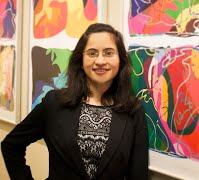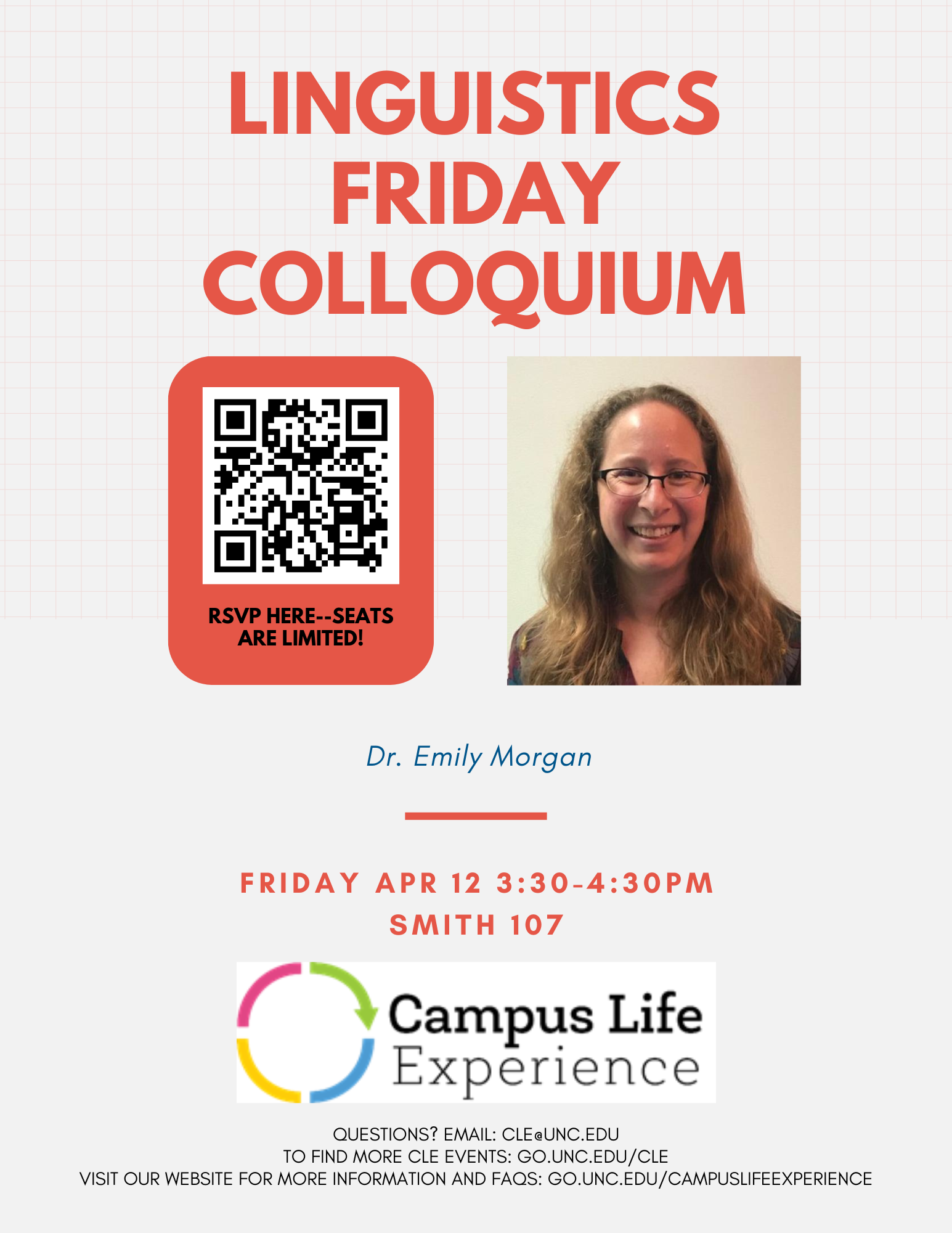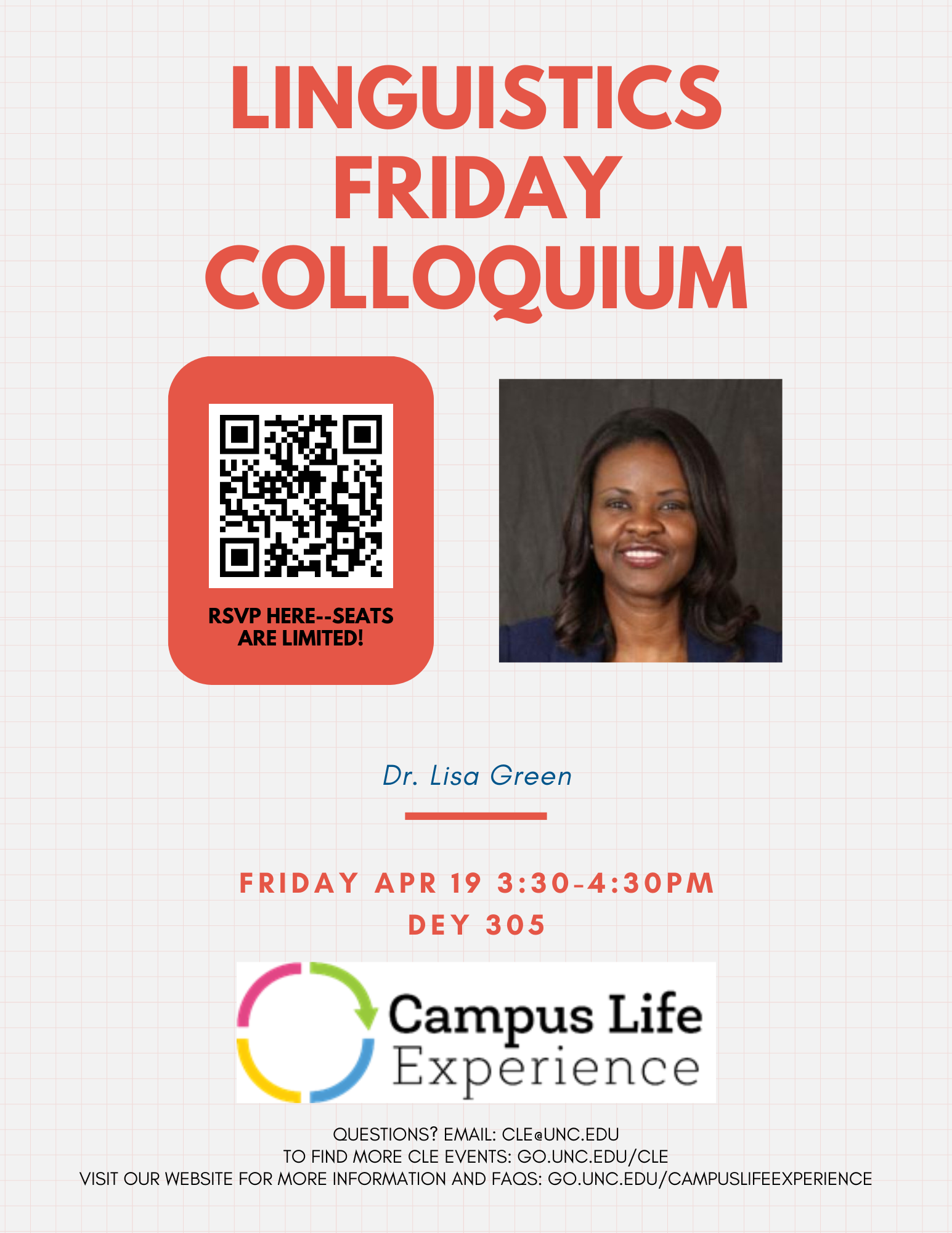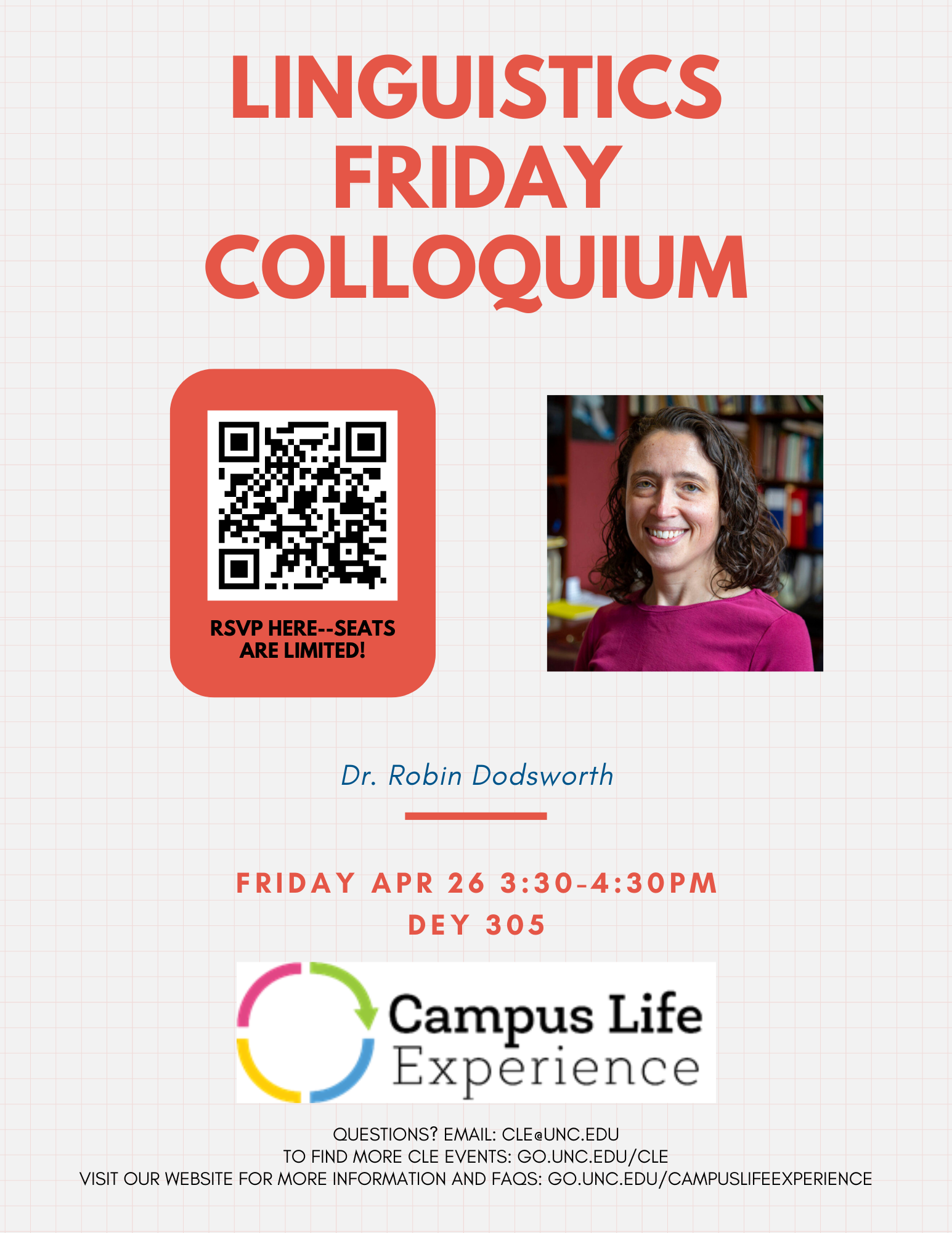Past Linguistics Events
Linguistics Events
Personal Statements for PhD Programs and Applications for Non-Academic Positions
September 27, 2019, 3:30 pm – 4:30 pm
Smith Building, 107
This Friday, September 27, 2019, our Friday Linguistics Colloquium will consist of a professional development workshop for graduate students. The workshop will be led by Professors Elliott Moreton and Jennifer Smith.

Difficult Discourse
October 11, 2019, 1:00 pm – 5:00 pm
Hyde Hall, University Room
This event will feature talks by five scholars in complementary areas, linguistics, communication, rhetoric, library science, and sociology, about their research on these and related topics, as well as a panel discussion with additional expert faculty from UNC.
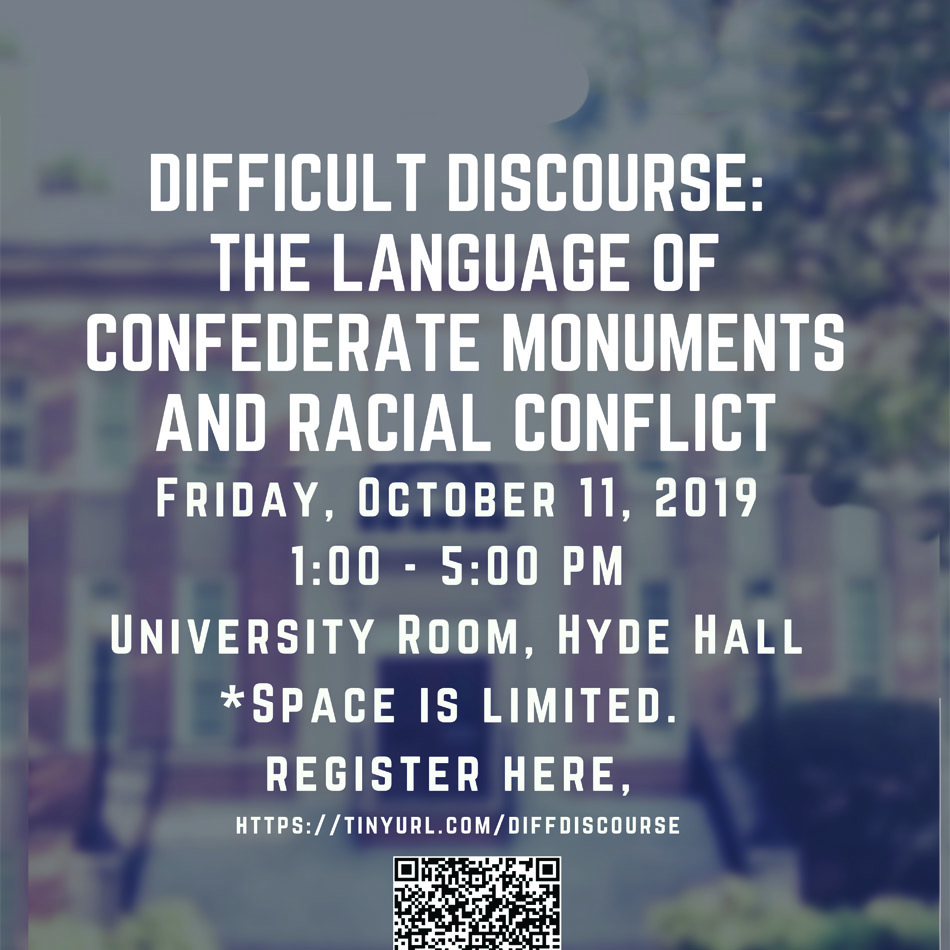
Colloquium Talk
October 25, 2019, 3:30 PM – 4:30 PM
Smith Building, 107
Graduate students Tristan Bavol and Victoria Johnston will present on "Divergent Principles of Numeral Formation in P’urhepecha" at 3:30 pm in 107 Smith Building.
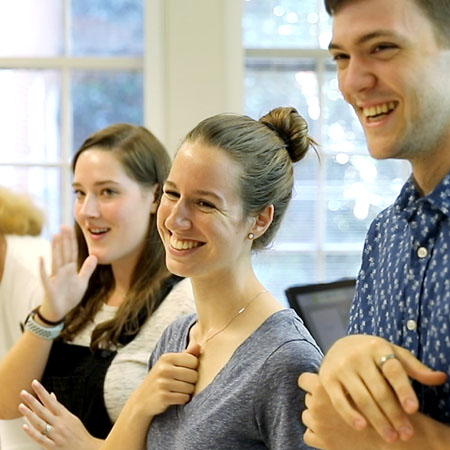
Colloquium Talk
November 22, 2019, 3:30 pm – 4:30 pm
Smith Building, 107
Professor Adam Albright from MIT will give a talk in our Friday colloquium series on November. Professor Albright's research interests span Phonology, Morphology, Language Acquisition, and Computational Linguistics.
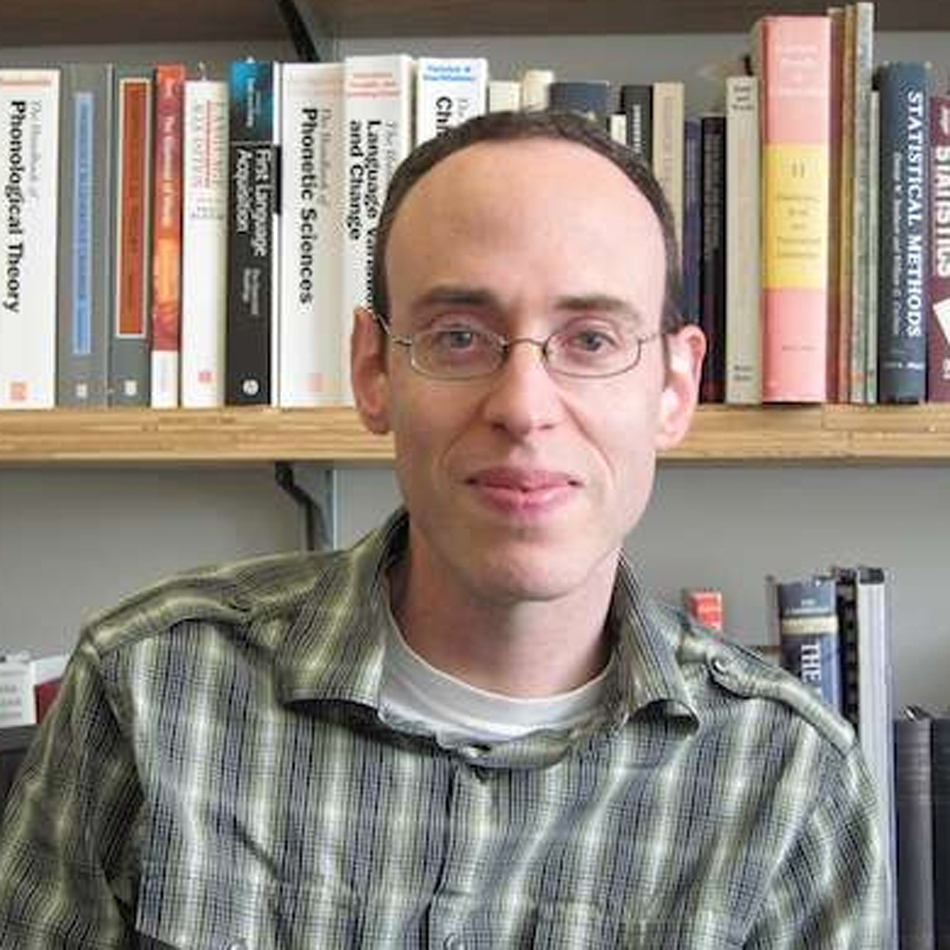
Language Exchange
February 7, 2020, 05:30 pm – 07:30 pm
Imbibe, 108 Henderson St.
Presented by the Linguistic Graduate Student Association and Imbibe! Come by and grab a sticker or two to represent the language(s) you want to practice, stick 'em on, and get to talking!

Spring Colloquium (CANCELLED)
March 21, 2020, 09:30 am – 05:45 pm
Carolina Union, 3411
Hosted by the Linguistics Graduate Student Association every spring. Fellow linguists are invited from all over to present and discuss current topics of interest in the field in an all-day conference.
UPDATE: This event has been CANCELLED due to the ongoing situation regarding the coronavirus outbreak.
Computational Linguistics seminar: Kristen Summers
September 15, 2020, 5:00 pm – 6:00 pm
via Zoom,
Kristen Summers, a leading Data Scientist at IBM, will speak to the Computational Linguistics Certificate participants about her current work.

Computational Linguistics seminar: Stacy Joines
October 6, 2020, 5:00 pm – 6:00 pm
via Zoom,
Stacy Joines, an IBM Fellow with Garage Solutions Engineering at IBM, will speak to the Computational Linguistics Certificate participants about her current work.
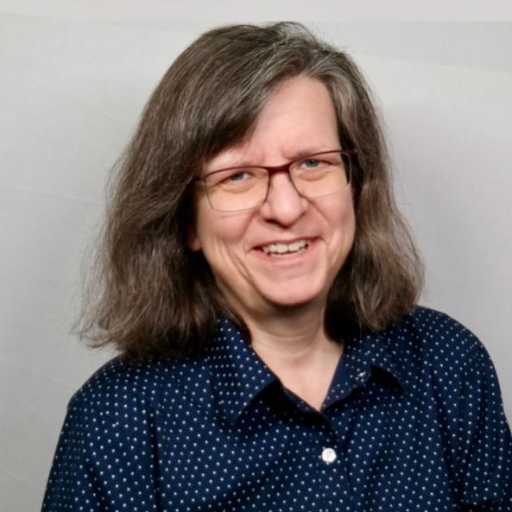
Computational Linguistics seminar: Peter Baumgartner
October 20, 2020, 3:00 pm – 4:00 pm
via Zoom,
Peter Baumgartner, a Data Scientist at RTI International will speak to the Computational Linguistics Certificate program participants about his current work.
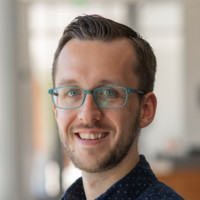
Computational Linguistics seminar: James Jushchuk
November 10, 2020, 3:00 pm – 4:00 pm
via Zoom,
James Jushchuk, who covers UNC for the IBM RTP University Programs team, will speak to the Computational Linguistics Certificate program participants about his current work and opportunities with IBM.

End-of-semester Virtual Social Hour
December 2, 2020, 3:30 pm – 5:30 pm
via Zoom,
Let's celebrate having survived this ultra-challenging semester! For faculty and students in linguistics, and friends and family members are welcome too.
Spanish as a Heritage Language Lecture Series: Dr. Jim Michnowitz
February 3, 2021, 4:00 pm – 5:00 pm
via zoom,
Dr. Jim Michnowicz, Professor of Hispanic Linguistics, North Carolina State University
Spanish in North Carolina - Insights into Heritage Spanish/El español en Carolina del Norte - perspectivas sobre el español de herencia.
This lecture series is sponsored by the Department of Romance Languages and co-sponsored by the Department of Linguistics and the Institute for the Study of the Americas.
The lecture will take place over zoom.
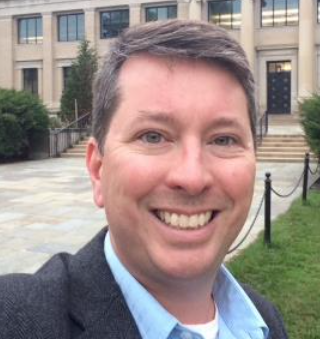
Spanish as a Heritage Language Lecture Series: Dr. Kim Potowski
February 17, 2021, 4:00 pm – 5:00 pm
zoom, virtual
Dr. Kim Potowski, Professor of Spanish, The University of Illinois at Chicago
Apples and Oranges: Best Approaches in Working with Spanish Heritage Speakers
This lecture series is sponsored by the Department of Romance Languages and co-sponsored by the Department of Linguistics and the Institute for the Study of the Americas.
The lecture will take place over zoom.
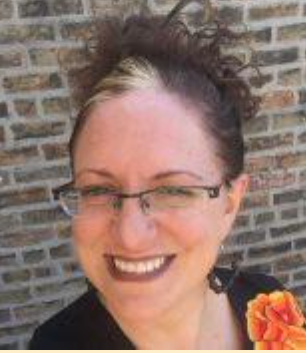
Computational Linguistics Seminar: Dr. Annie Chen
March 2, 2021, 4:00 pm – 5:00 pm
via Zoom,
Dr. Chen, an Assistant Professor in the Department of Biomedical Informatics and Medical Education at the University of Washington, will speak to the Computational Linguistics Certificate seminar about her current research. In her talk, "Studying the Language of Psychological and Social Processes in Social Media and Personal Communications: Examples from Biomedical Informatics and Digital Humanities Research", Dr. Chen will talk about two of her on-going projects. One project concerns prediction of substance use stigma in social media text, and the other is about extraction of person mentions in a corpus of personal diaries from 19th century Ottoman Iraq.
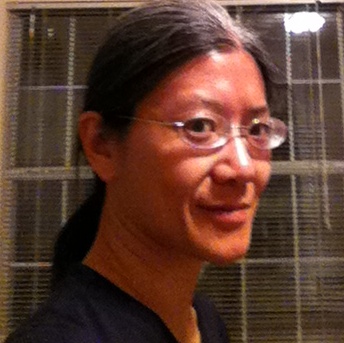
UNC Linguistics Spring Colloquium 2021
March 20, 2021, 09:30 am – 05:45 pm
zoom, virtual
UNC Linguistics Spring Colloquium 2021 will be held Saturday, March 20th via Zoom with
Dr. Natalie Schilling (Georgetown University) and Dr. Kate Lindsey (Boston University), as keynote speakers. The Linguistics Department is now accepting abstracts for the Colloquium. Click here for more information.
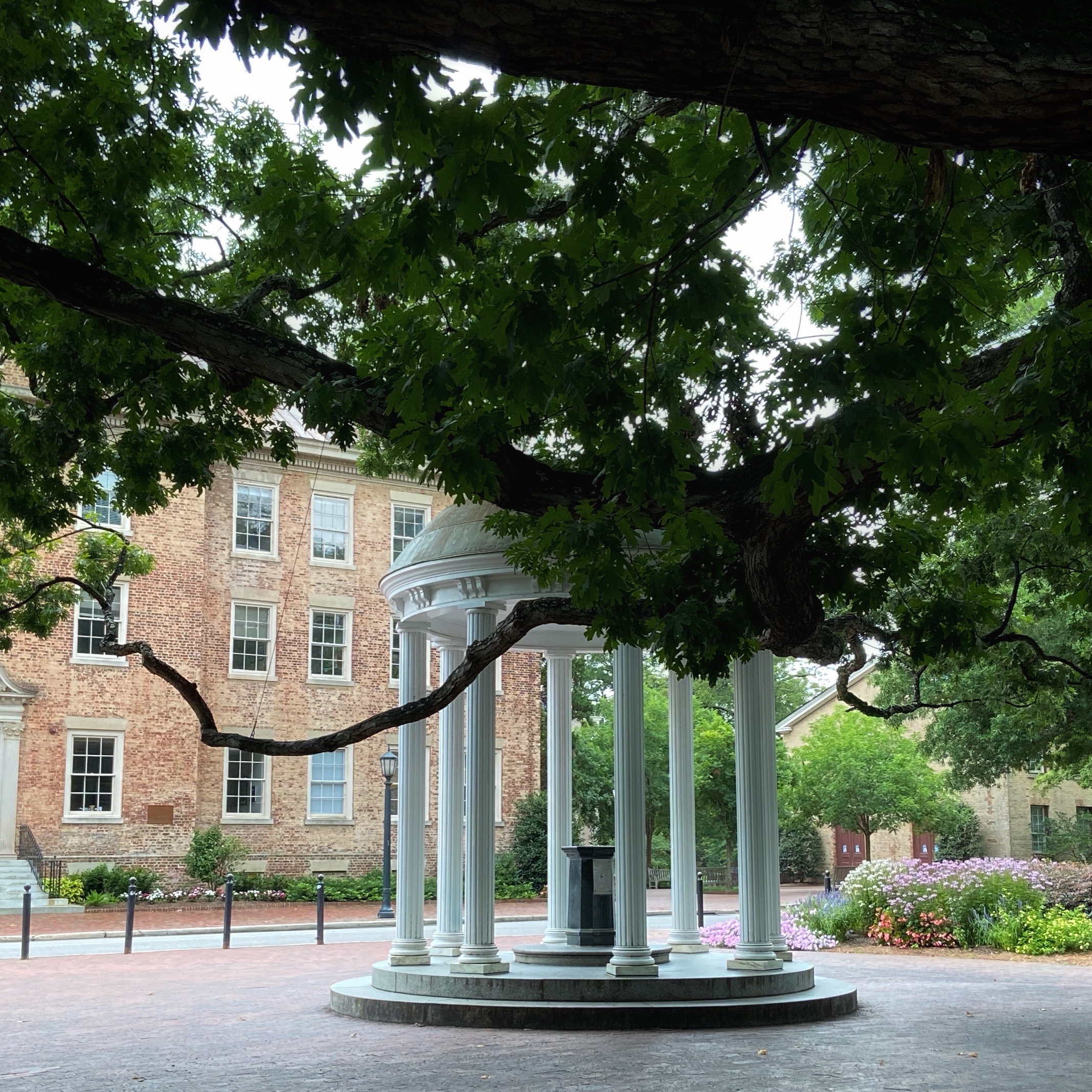
Heritage Language Research Institute
June 7, 2021, 9:45 am – 6:00 pm
TBA,
Together with Duke university and UCLA's National Heritage Language Resource Center, we will be co-hosting the Thirteenth Heritage Language Research Institute, June 7-10, 2021. The theme of this year's Institute is language similarity and language distance in bilingual/heritage language situations. We are accepting abstracts for poster presentations. For more information, and to submit an abstract, please see the event webpage.

Welcome Gathering
August 19, 2021, 4:45 pm – 6:00 pm
tent, outside Smith
The Department will host an informal welcome/welcome back gathering for Linguistics grad students, faculty and staff. The event will be held outdoors under the tent next to the Smith Building.
Participants are required to wear masks.
Linguistics Grad Student Orientation
August 20, 2021, 3:30pm – 4:45pm
Smith, 107
This orientation introduces our new MA students to the department and the graduate program. Led by Prof. Elliott Moreton (Director of Graduate Studies), new students have an opportunity to meet the faculty and returning grad students, and to get an overview of the program and expectations. This orientation is intended for ALL graduate students. Returning students are encouraged to share their experiences and advice with incoming students.
Welcome Social Gathering Event
August 25, 2021, 12:30 pm – 1:45 pm
tent outside Smith,
We will hold a welcome social gathering event for Linguistics majors, minors, and interested students on Wed Aug 25 from 12:30pm to 1:45pm in the music tent outside of Smith Building. Last year was a challenging one for many of us and some of you have never met your professors and fellow classmates in person! We hope that you can make it to this gathering to informally hang out and chat with other linguistics students. It will also be a chance to ask any questions you have about the program, courses, or the BA/MA
Computational Linguistics Seminar: Dr. Colin Raffel
September 8, 2021, 10:00 a.m. – 11:00 a.m.
TBA, Zoom, https://unc.zoom.us/j/92325365003?pwd=SnpSUDlOZWZUYiswTHpia0k1NnpFUT09
Prof. Colin Raffel (UNC Department of Computer Science) will speak about his recent work on large language models. Please join us!
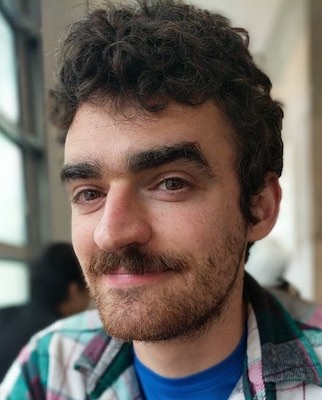
Computational Linguistics Seminar: Sujatha Perepa
September 29, 2021, 10:00 a.m. – 11:00 a.m.
Zoom, https://unc.zoom.us/j/98224758677?pwd=NWZYV2IrM1BsYXJQY2N0NDQwbFZFZz09
Sujatha Perepa, Distinguished Engineer and expert in AI and Machine Learning at IBM, will speak about her current projects involving fairness and bias in machine learning, and about multilingual chatbots.
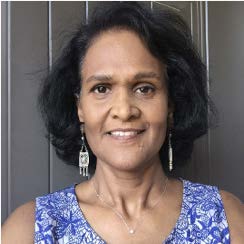
Computational Linguistics Seminar: Dr. Damir Cavar
October 6, 2021, 10:00 a.m. – 11:00 a.m.
Zoom, https://unc.zoom.us/j/94032978680?pwd=OWNZcXVQVkV1azVLQUZsSUhWZkRVQT09
Prof. Damir Cavar, Associate Professor in the Department of Linguistics and affiliated faculty with Data Science and Cognitive Science at Indiana University, will speak about his current NLP projects.
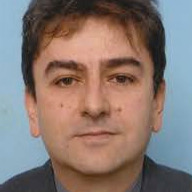
Computational Linguistics Seminar: Peter Baumgartner and Kirsty Weitzel
December 1, 2021, 10:00 a.m. – 11:00 a.m.
Zoom, https://unc.zoom.us/j/98173161520?pwd=YzdCRk1nWEluSHZWaDNydjVCWHVMUT09
Peter Baumgartner and Kirsty Weitzel, Data Scientists at RTI International, will speak about their project on developing a chatbot to assist victims of burglary.
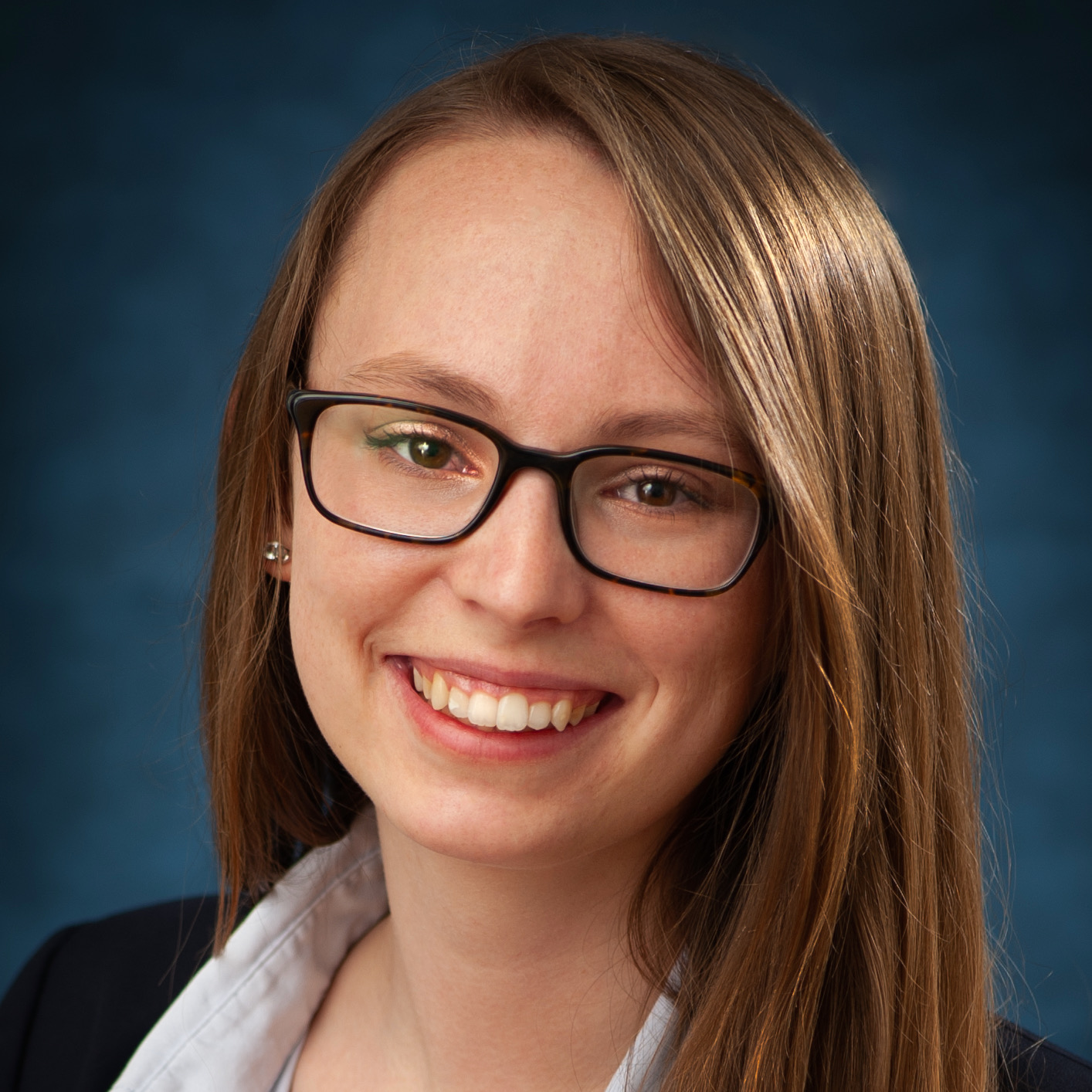
Computational Linguistics Seminar: Dr. Neal Snider
February 10, 2022, 3:00 pm – 4:00 pm
Zoom,
Neal Snider, Senior Research Manager at Nuance Communications (and UNC alum!) will hold a Q&A session about some of the Computational Linguistics tasks and techniques being used in the software industry today, including the use of machine learning, but also cases when it's not used.
Please join us on Zoom: https://unc.zoom.us/j/93298080680?pwd=a1JjbWNtNjZ3YXdrc3dTcDNadC9CUT09
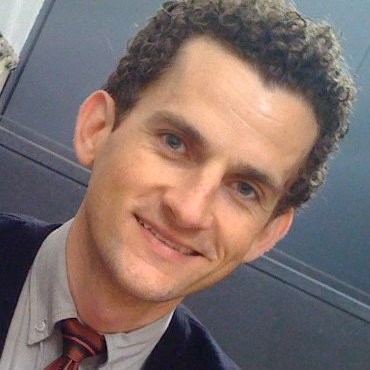
UNC Linguistics Spring Colloquium 2022
March 26, 2022, 9:45 a.m. – 5:00 p.m.
Zoom, Link TBA
UNC Linguistics Spring Colloquium 2022 will be held Saturday, March 26th, 2022 on Zoom with Dr. Steven Piantadosi from UC Berkeley and Dr. Jason Rothman from The Arctic University of Norway as keynote speakers. Click the buttom below for more information.

Computational Linguistics Seminar: Dr. Tal Linzen
April 8, 2022, 12:00 pm – 1:00 pm
Zoom,
Tal Linzen, assistant professor of Linguistics and Data Science at NYU, will speak in the Computational Linguistics seminar about "Neural Networks as Cognitive Models of Syntax". This talk will be held in person, but also available via Zoom: https://unc.zoom.us/j/96765974332?pwd=VGtkY2h3bkVNZGNQMmt6eTFJMzVLdz09
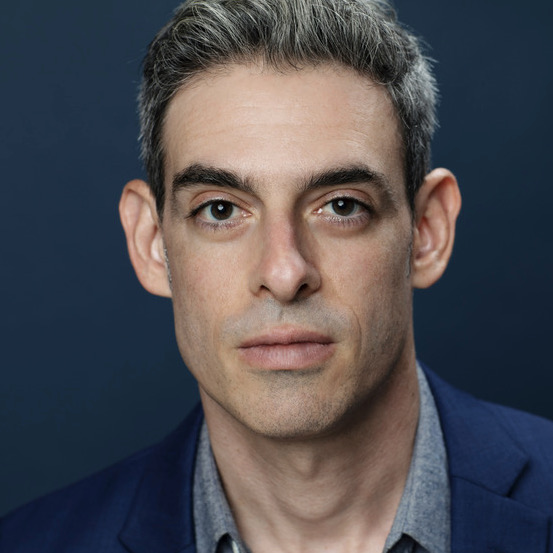
Linguistics Commencement May 2022
May 8, 2022, 11:00am –
Kenan Music Building,
Computational Linguistics Seminar: Dr. Aniello De Santo
October 27, 2022, 3:30pm – 4:30pm
via Zoom, https://unc.zoom.us/j/98285410654?pwd=VkdSSUJPeUZSMXlseUlDMHRhZlM0dz09
Aniello De Santo, a computational psycholinguist at University of Utah, will speak about his work in computational linguistics. The title of his talk is Symbolic Parsers as Models of Sentence Processing: A Minimalist Perspective. Please join us!
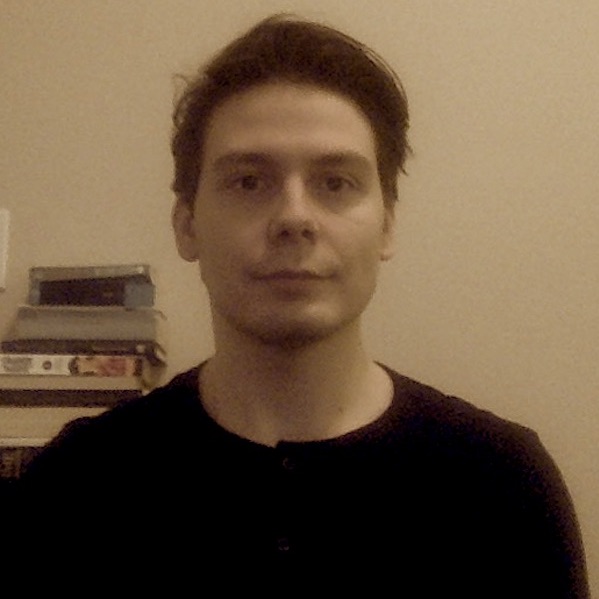
Computational Linguistics Seminar: Dr. Jamie Arguello
November 15, 2022, 3:30pm – 4:30pm
Peabody, 2094
Prof. Jaime Arguello, faculty in UNC's School of Information and Library Science, will speak about his ongoing projects related to computational linguistics. The title of his talk is Using Principal Component Analysis to Better Understand Behavioral Measures and their Effects. Please join us for this in-person event!
Grad Student Orientation
August 25, 2023, 3:30 pm – 4:30 pm
Smith, 107
We'll hold our annual grad student orientation on the first Friday of the semester at 3:30. This event is for ALL Linguistics grad students! New students will receive important information about how to navigate and succeed in our program, and returning students will receive helpful reminders and have an opportunity to share their experiences and tips with incoming students. It will also be a great opportunity for everyone to meet each other. Faculty are encouraged to attend.
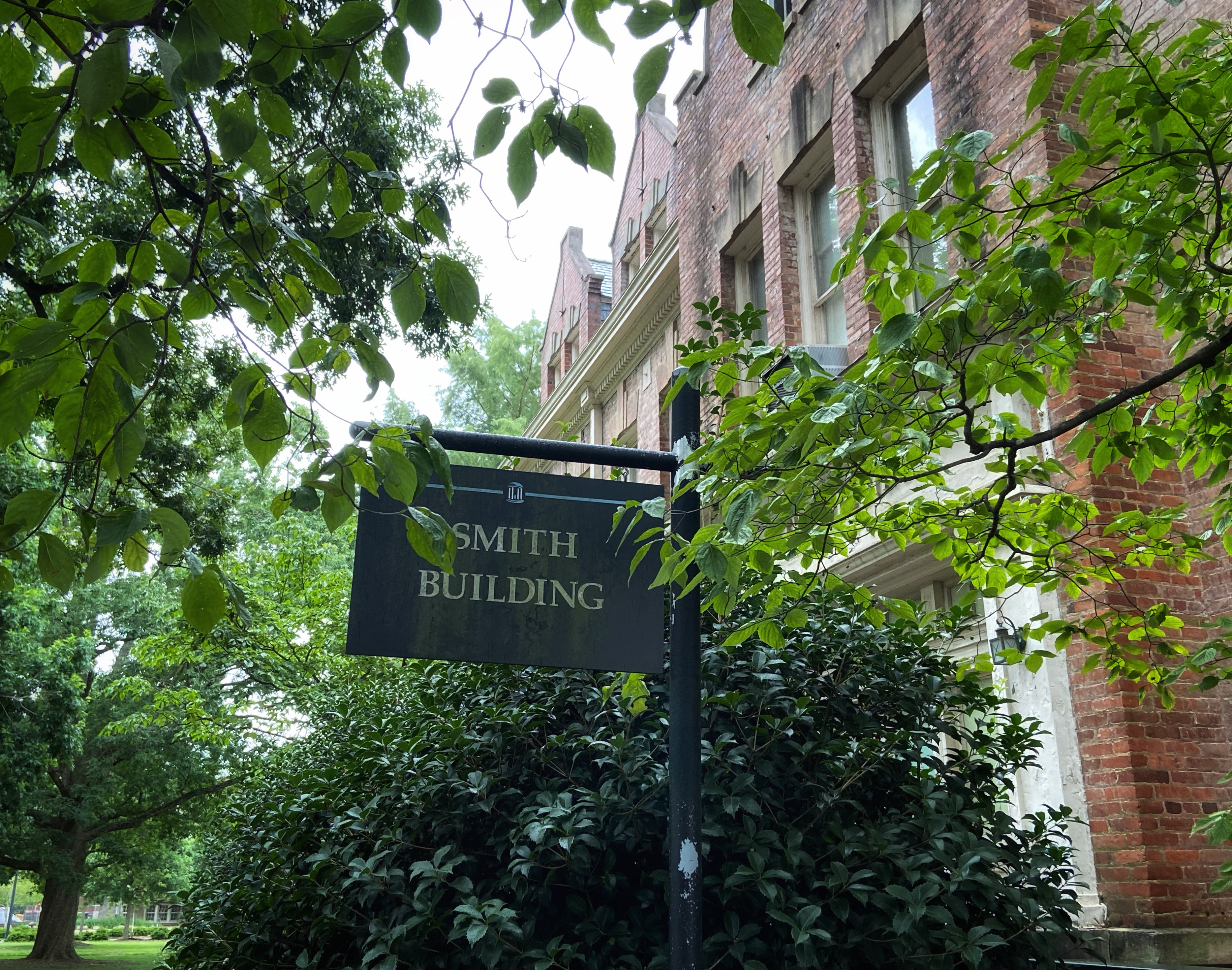
Friday Colloquium Speaker: Brian Ladd (NC State)
September 15, 2023, 3:30 pm – 4:30 pm
Smith, 107
Brian Ladd, a current PhD student at NC State University, and MA alum of UNC Linguistics, will speak about his current research.
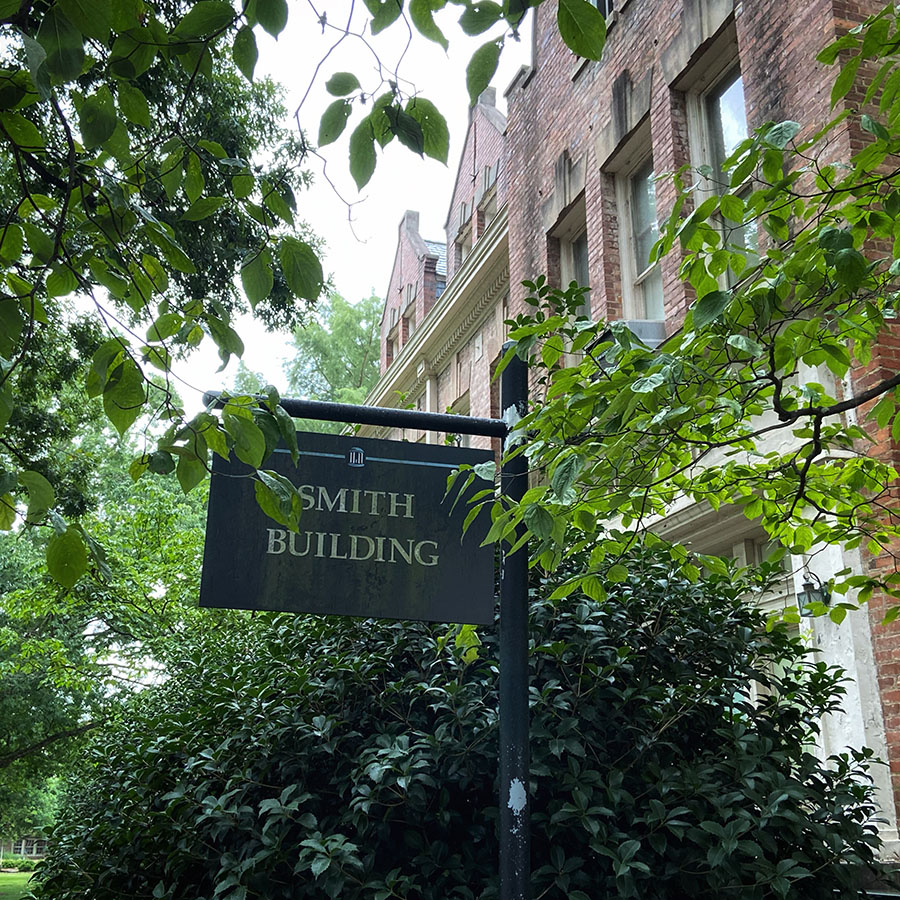
Friday Colloquium Speaker: David Mora Marin (UNC)
September 22, 2023, 3:30 pm – 4:30 pm
Smith, 107
UNC Linguistics' own Prof. David Mora-Marin will speak about the evolution of Mayan Spelling Practices: Polymorphemic Logography and Phonetic Complementation
Friday Colloquium Speaker: Elliott Moreton (UNC)
September 29, 2023, 3:30pm – 4:30pm
Smith, 107
UNC Linguistics' own Prof. Elliott Moreton will speak about the process of applying to PhD programs.
Friday Colloquium: Abstract Writing Workshop
October 6, 2023, 3:30pm – 4:30pm
Smith, 107
The topic for this Friday Colloquium will be an Abstract Writing Workshop
CLC Brown Bag: Elias Stengel-Eskin
October 26, 2023, 12:30pm – 1:30pm
MU, 0222
We will hear from Elias Stengel-Eskin who is a new postdoc in the CS department (working with Mohit Bansal), focusing on how AI models represent meaning.
Friday Colloquium: Prof. Paul Portner Talk Prep
October 27, 2023, 3:30 pm – 4:30 pm
Smith, 107
Prep for Prof. Portner's Nov 3 Talk
Friday Colloquium: Prof. Paul Portner
November 3, 2023, 3:30 pm – 4:30 pm
Smith, 107
Social Presuppositions
Friday Colloquium Speaker: Paul Portner (Georgetown)
November 3, 2023, 3:30 pm – 4:30 pm
Smith, 107
Paul Portner, Professor at Georgetown University, will speak to our Department about his research in semantics, pragmatics, and their interfaces with each other and with syntax. All are welcome!
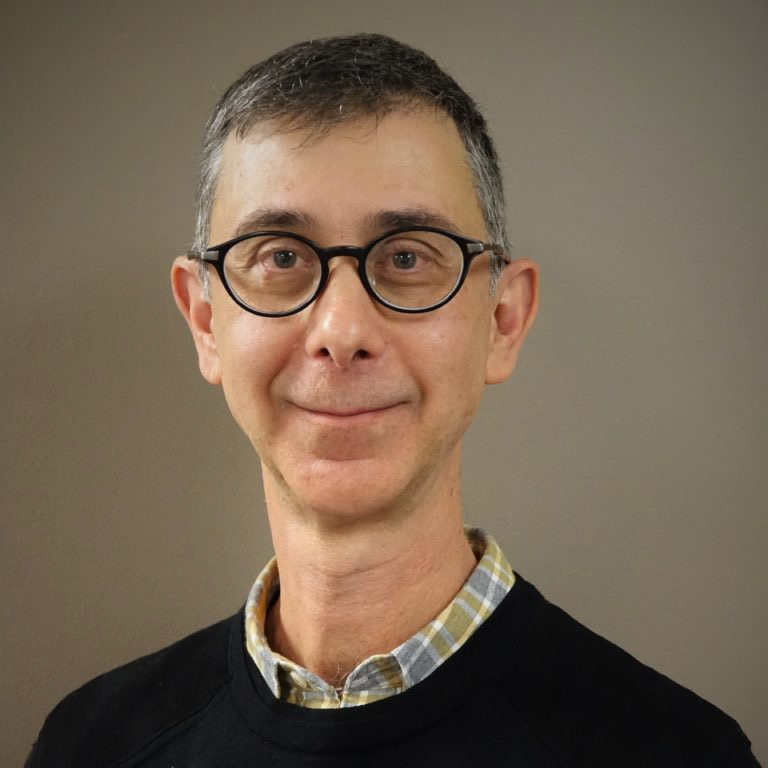
CLC Brown Bag: Rich Stureborg
November 30, 2023, 12:30 pm – 1:30 pm
MU, 0222
We will hear from Rich Stureborg who is currently a CS PhD student at Duke working on vaccine misinformation and high-subjectivity tasks in natural language processing.
Friday Colloquium: Trey Anthony
December 1, 2023, 3:30 pm – 4:30 pm
Smith, 103
Spanish, unlike English, does not have an established pronoun akin to singular ‘they’, that is to say, an already-existing pronoun with a long history of non-binary usage for either known or unknown referents. However, the greater visibility of non-binary people in Spanish-speaking countries has led to innovations, such as the inclusive ‘-e’ and neopronoun ‘elle’. My study sought to utilize the methods found in Bradley (2020) to analyze linguistic and non-linguistic factors influencing acceptability judgements around uses of non-binary inclusive language in Spanish. Native Spanish speakers residing in the US rated the acceptability of various examples of non-binary language and then filled out two inventories designed to gauge linguistic prescriptivism and gender role attitudes. The talk will discuss the preliminary results of the study, as well as focus on the pitfalls encountered and potential modifications to the methodology for future investigation
Friday Colloquium: Faculty on Linguistics in Real-World Problems
February 2, 2024, 3:30p – 4:30p
Smith, 0107
Friday Colloquium: Dr. Jo Napoli, "Movement in Sign Language"
February 23, 2024, 3:30p – 4:30p
Smith, 107
Friday Colloquium "How much overt agreement is needed for polysynthesis? Quantitative evidence from Cherokee."
March 1, 2024, 3:30p – 4:30p
Smith, 107
Friday Colloquium: The Copador Writing System of Honduras and El Salvador: Initial Documentation and Decipherment Steps
March 8, 2024, 3:30 pm – 4:30 pm
Smith, 107
Friday Colloquium: Emma Wrenn
March 22, 2024, 3:30p – 4:30p
Smith, 0107
